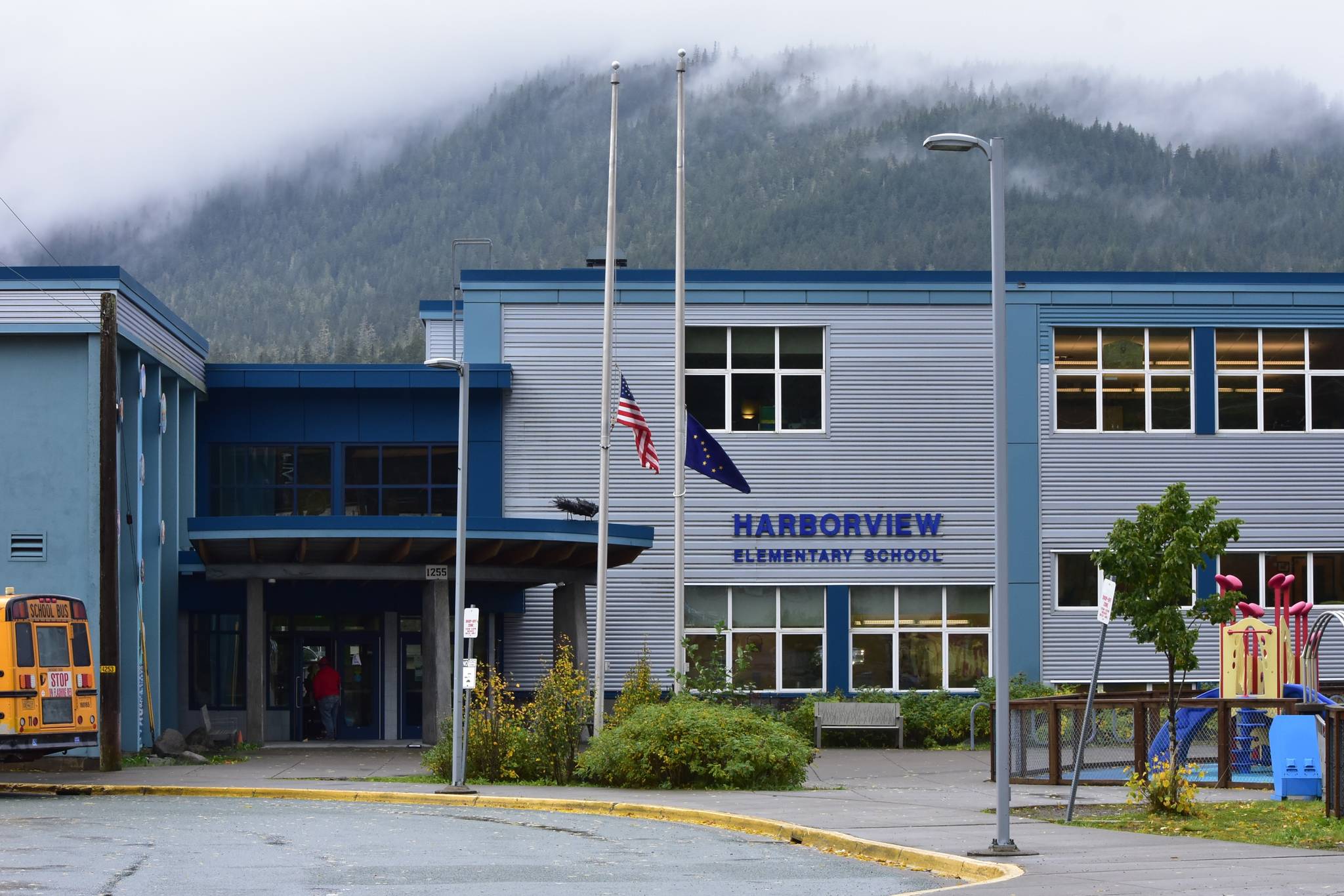The Juneau School District’s kindergarten through fifth grade child care program is now being offered at a reduced price thanks to an emergency appropriation from the city.
With an additional $600,000 of CARES Act funding from the City and Borough of Juneau Assembly, the district can now offer child care for $515 a month, per child, down from the more than $1,200 projected without subsidy.
“We’re very thankful to the city for this,” said RALLY Supervisor Cheryl Glen. “We are taking applications left and right since Friday.”
Glen said as of Monday there was only one “cohort” of students, but as more children are enrolled, new cohorts will be created as needed. The program approved 21 additional applications Monday, Glen said, and staff are still processing new ones.
But finding ways to group kids together can get complicated, she said, and staff are working with families to find commonalities among students when placing them in cohorts.
[RALLY funding gets a rain check]
“We try to see where we can find commonalities,” Glen said. “We try to look at their needs, all of the factors without being overtly evasive in their lives. It doesn’t make sense to put siblings in different cohorts.”
The program is only being offered at Harborview, Glacier Valley and Riverbend Elementary schools from 7:30 a.m. to 5:30 p.m. during the school week. The size of each cohort will fluctuate depending on enrollment, Glen said, but won’t be larger than 14.
Under the current state and city health guidelines, Relationships and Leadership, Learning for Youth has room for 126 students, Weiss said in an interview Monday, something very different from managing 4,500.
“We’re developing face-to-face support for the kids,” Weiss said. “126 seats, that’s a very different operation status than 4,500, it is a very small segment of our operations.”
The district is sympathetic to the frustration families are feeling because schools are closed, she said, but in light of Juneau’s health status, school officials aren’t yet comfortable bringing all students back for in-person learning. Weiss said the district is prioritizing special needs students for in-person support but was still developing face-to-face programs.
[With schools online, city looks for child care alternatives]
RALLY used to be mostly a before and after-school program, but now it was being run for a full 10 hours, Glen said. Students are still attending their online classes and receive support with their assignments, but RALLY staff are not trained to be academic teachers and are more focused on social learning and relationships, she said.
The district hasn’t yet specified a date for in-person classes to resume, Weiss said Monday.
Weiss and Board of Education President Brian Holst had originally asked for $560,000 for the program at a Sept. 3, Assembly meeting but that request was denied when members decided they wanted to address child care in a future meeting. Holst and Weiss told the Assembly that because of additional health requirements in place during the COVID-19 pandemic the cost of running the program itself had risen. The Assembly approved the funding, but at a later meeting.
The program had to accept fewer children to ensure social distancing, Holst and Weiss said, saying at the Sept. 3, meeting only eight students had so far enrolled in the program. With the previous funding and enrollment the district would’ve had to charge $310 a week for each child, they said.
• Contact reporter Peter Segall at psegall@juneauempire.com. Follow him on Twitter at @SegallJnuEmpire.

